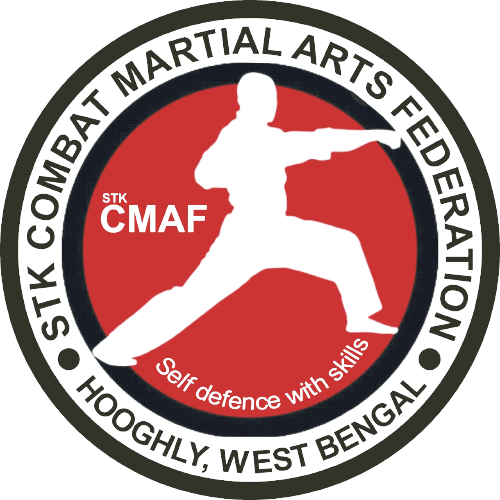Karate can be practised at different levels and with a variety of goals, principally the following:
1. Karate was initially a system of self-defence developed on the island of Okinawa and influenced by Chinese martial arts.
2. Karate subsequently became a martial art and a system of education. Karate also aims to perfect one’s character:
— A dojo is a meeting place where the following are promoted: respect for elders, hierarchy (sensei, sempai, etc.) and other people (“partners” rather than “opponents”) as well as courtesy(initial greeting, at the end of a lesson and before an exchange, etc.);
— Karate fosters willpower, precision and perseverance (for example, through kihons, stances and training sessions that are sometimes difficult);
— Karate improves self-confidence and assurance;
— It promotes control of the body and mind (self-control) and teaches practitioners how to master their ego. Paradoxically, therefore, a combat becomes a meeting, an exchange that enables two partners to mutually improve themselves and not to assert their superiority. Furthermore, during a fight it is important to learn how to relax the muscles and mind whilst being attentive to the present moment. No emotion or intent should show through, unless it is to trick “the adversary”;
— The height of the art is, of course, to anticipate an attack. In extreme cases, it is also to avoid dangerous situations and fights.
3. Karate has become a sport that aims to improve physicalfitness and health as well as a competitive sport. This new aspect, which is inseparable from karate’s current success, nevertheless risks distancing practitioners from the martial art.
4. Karate is also practised for pleasure. As Kenwa Mabuni used to say: “My oar dips into the foam whilst in the distance beckons the island of martial arts. I have no other thought than this: Ah! What bliss to row there…”. It is not reaching the seashore or mountaintop that is important but the path that takes us there. In other words, simply enjoy the moment and pleasure of training. We should remember that a physical effort causes endorphins (molecules that are similar to morphine) to secrete, which generates a state of well-being.
5. Finally, once the basics of karate have been acquired, the word “art” implies a personal quest and creativity in practice not just technically but also morally and philosophically.
What are the benefits of Karate
Karate is the perfect practice for getting the most out of life physically, mentally, and spiritually. The various self-defense techniques that you’ll learn will help you develop physical strength and keep you body fit and flexible. Karate isn’t just for learning self-defense, it’s also great for your overall health and well being. Discover how.
Karate is a discipline, a fitness regimen, and a form of self-defense that’s useful for all ages. Research shows that Karate offers a myriad of benefits for the body and mind. While the physical benefits and advantages of Karate are apparent, the mental benefits can’t be discounted.
